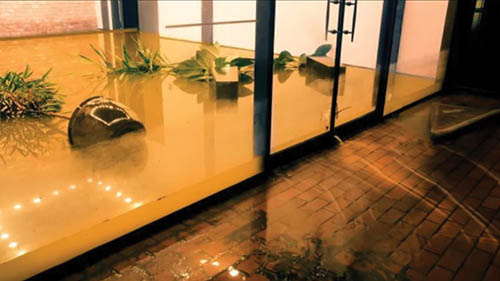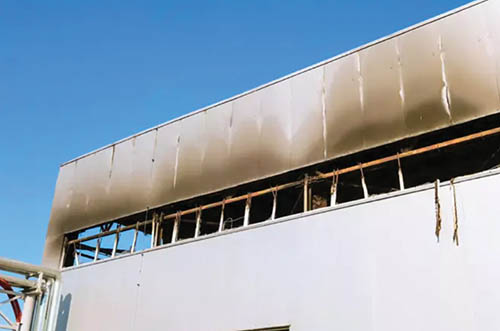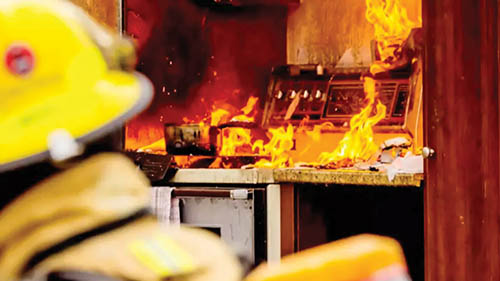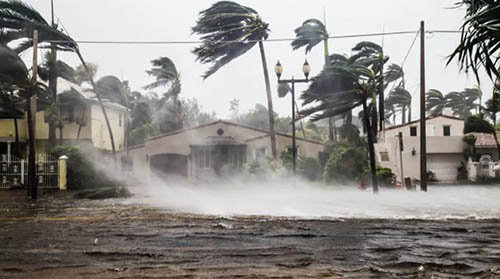— By Josh Miller —
Preventive maintenance measures before disaster strikes.
As a business owner, you’re always thinking about how to scale to the next level. You’re focused on what to do to improve daily operations, outshine the competition and attract more customers. But amid all of the strategic thinking and execution, one key aspect that often gets overlooked is planning for the worst-case scenario.
In all my years in the restoration industry, I’ve seen firsthand how devastating these events can be whether in retail spaces or restaurants. One moment everything’s running smoothly, customers are happy, and then the next — BAM! — a burst pipe or sparks from an electrical fire bring everything to a halt.
The good news? Many of these situations can be prevented or mitigated with proper preparation and planning. By establishing a preventative maintenance routine tailored to your industry, you can limit costly damages and continue to be up and running smoothly, no matter what comes your way.
Let’s discuss the top five unexpected disasters I’ve seen in retail and restaurant spaces and how you can plan ahead to prevent them from happening in your own storefront:
1. Plumbing Mayhem
Water damage is one of the most common and costly disasters for businesses, especially in restaurants, where heavy water use is constant with cooking or washing dishes. It’s a disaster that’s fast moving and can just about end up in all corners of the business. Leaks, burst pipes and even sewage backups can cause flooding and significant damage to your building, leading to expensive repairs as well as serious disruption to operations.

Here’s what you can do to prevent an unexpected flood:
• Conduct regular inspections of all plumbing systems. This means checking pipes for any notable leaks or cracks, as well as the efficiency of drains and all water fixtures.
• In restaurant kitchens, ensure that grease traps are cleaned regularly to prevent blockages as well as garbage disposals are up and running properly.
• If you live in a climate that experiences cold weather, consider insulating your business’s outdoor pipes. During the winter, pipes run the risk of freezing and bursting which can lead to serious and costly water damage as well as impacting the structural system of the building.
• Upgrade to installing water sensors or automatic shut-off valves that can detect leaks early and prevent widespread water damage.
2. Electrical Fires
Electrical fires are very common, especially in restaurants where there are multiple high-wattage appliances that are in constant use. Things such as faulty wiring, overloaded circuits or even a lightbulb with too high of a wattage or worn/damaged outlets, can all lead to serious fire outbreaks.

How to prevent your business from going ablaze:
• Hire a licensed electrician to inspect your electrical system at least once a year. This includes checking for overloaded circuits, damaged wires and faulty outlets.
• Ensure that all appliances and equipment are properly grounded and meet safety standards.
• Train staff to recognize signs of electrical problems, such as flickering lights, buzzing sounds from outlets or warm-to-the-touch switches.
• Avoid overloading power strips or circuits, especially in kitchen and back-office areas where multiple appliances can be running simultaneously.
3. When Mother Nature Steps In

If there’s one thing in life we’ll never be able to control, it’s the weather. But we can certainly prepare for it, including in your own business. Owners should take into consideration where their store or restaurant is located. Are you in an area that is prone to hurricanes? What about tornadoes or wildfires? Bad snow storms? It’s crucial to know the different types of extreme weather that may impact us based on where our business is located. Flooding from hurricanes or wind damage from tornadoes can shut down operations for weeks and fast-moving flames from wildfires can destroy entire buildings within minutes.
Steps all businesses can take now to prepare for weather events include:
• Regularly monitor local weather reports, especially during peak storm seasons.
• Create a disaster preparedness plan that includes evacuation routes, emergency kits and outlines the communication plan between employees. Each quarter, make it a priority to rehearse with your team members what to do in case a major storm impacts your business.
• When a weather disaster is expected in your area, such as a hurricane, consider hiring a professional restoration company to help board up your storefront to mitigate any serious damages.
• Annually review your business insurance to confirm necessary coverage types as well as amount of coverage provided by your policy.
4. Finding Mold

Mold is a sneaky problem that can develop in a business after water damage, due to elevated humidity levels, or because of a poorly functioning HVAC system. Left untreated, mold can spread quickly, leading to potential structural damage and possible health issues for employees and customers.
Here’s what to do to keep mold out of your business:
• Keep humidity levels in check, especially in kitchens or bathrooms by using dehumidifiers and ensuring proper ventilation.
• Inspect areas prone to moisture buildup, such as inventory storage areas or behind appliances.
• If any sort of water damage occurs, act quickly to dry the areas to prevent mold from taking hold.
• Schedule routine inspections with a professional who can check every nook and cranny of your business where mold could be hiding.
5. HVAC Failures
A malfunctioning HVAC system can do more than just make your business space uncomfortable; it can lead to poor air quality, high energy costs and even dangerous carbon monoxide leaks, especially if you’re using gas-powered appliances.
How to keep your HVAC in tip-top shape:
• Schedule regular HVAC inspections to ensure the system is operating efficiently.
• Clean or replace filters often to maintain good indoor air quality and prevent the system from overworking.
• Inspect and make sure carbon monoxide detectors are working properly, particularly in gas-powered kitchens or areas with heavy equipment.
Last Thoughts
Unexpected disasters do not have to spiral into costly repairs or interrupted business operations. Proactively implementing some of the above preventative maintenance measures in your own retail and restaurant space can help drastically reduce the risk of costly damage. The key is to carry out regular inspections and perform any necessary repairs. This will not only save you money in the long run, but also keep your business up and running safely and smoothly. As a restoration expert, I’ve seen how businesses that prioritize these maintenance methods avoid many of the disasters we have discussed.
— Josh Miller became president of Rainbow Restoration in July 2022, bringing over 26 years of experience in the residential and commercial property damage restoration industry. Before joining Rainbow, he held operational leadership roles across the U.S. and served as a consultant, helping small business owners build scalable systems. Since joining Rainbow Restoration in 2017 as director of technical training, Miller built strong relationships with franchise owners and served as vice president of operations in 2021. He is a Certified Franchise Executive (IFA) and a Certified Restorer (RIA).

